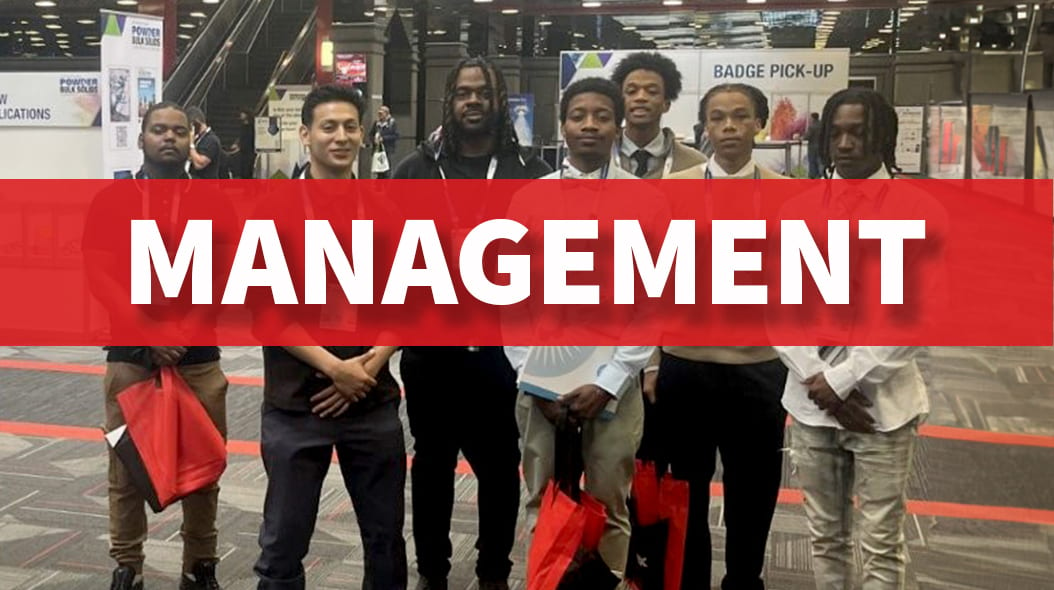H2 Deck By Bold Name
h2 xxxxxx
H1 xxxxxx
h2 xxxxx

Management
Quality is your best friend. And so is AI. Experts explain what the field looks like in 2025. By Michelle Bangert
The State of the Profession in 2025
Management
H2 Deck Info By Paragraph Style Bold
Headline
Think back to the year 2015. Perhaps you were busy looking for skilled labor, or working on the newly updated ISO 9001 certification. Most likely AI was not a big item on your radar.
A lot can change in ten years.
The state of the quality profession is always in flux—we’ll see where it ends up in 2035—and today’s manufacturers continue to require skilled workers, with automation picking up some of the demand. The good news is that the importance of quality continues to increase. With the changing landscape of tariffs and supply chain issues, manufacturers must be ready to adapt.
“If I’m a manufacturer in today’s world, I better be fixated on quality,” says Vick Vaishnavi, CEO, ETQ.
ETQ’s second global quality survey, “The Pulse of Quality in Manufacturing 2025,” found some encouraging trends.
It’s a good time to be in the quality field. Investment in quality is on the rise. And the quality of goods and services has perhaps never been better, according ASQ Fellow Denis Devos. But there are still struggles with what he calls “de-skilling,” recalls, and adapting to regulations and technology.
Read on to see how your experience compares to others in the field.
The Challenges
Recalls and safety incidents continue to be a challenge for manufacturers around the world, according to the ETQ survey, which found that the consequences of these incidents include “damage to brand reputation, delayed product introductions, plant shutdowns and personnel lay-offs.”
Any recall or safety incident can be catastrophic, as anyone who reads the news or even just scans the headlines can attest. But, on the bright side, the number of safety incidents is decreasing.
The Solutions
Do you know anyone who still has a landline? There are always technology holdouts. This is the analogy that Vaishnavi used to compare the adoption of AI.
“AI is here to stay. It’s not going anywhere,” says Vaishnavi.
How are you approaching AI? For 99% of survey respondents, it’s something they are using now or planning to in the near future.
Are you adopting AI now, or making plans to do so? Or are you part of the 1% of survey respondents who say they have no plans to use it?
The ETQ Pulse of Quality in Manufacturing 2025 survey was conducted on behalf of ETQ by research firm Censuswide. In January/February 2025, the company surveyed 752 quality leaders and related project managers at manufacturing firms across the U.S., the U.K. and Germany, and asked them about their work in quality. The respondents came from industries such as automotive, medical devices, electronics and appliances, and general manufacturing.
Quality Then and Now
Think back to when you first started your career. Many quality professionals can recall what technology was around when they began their work. For many, it was landlines rather than cell phones and an early Apple computer instead of AI.
Daniel Zrymiak has almost three decades of experience in international quality and risk management. He is an ASQ Fellow and was awarded ASQ’s Feigenbaum and Crosby Medals. Zrymiak is certified by PMI as a Project Management Professional, by ASQ as a Quality and Organizational Excellence Manager, Six Sigma Black Belt, Software Quality Engineer, Quality Engineer, and holds multiple active quality auditor credentials.
In his long career, he’s seen a lot of quality trends. The role of a quality professional has changed. And even the responsibilities that used to be done by a team of people can be completed by one person and some software.
“It’s much easier to control and distribute important documentation and references to the people that need to have them. And in turn, once those references are obsolete, to remove those from circulation,” says Zrymiak.
Another bonus with technology is the vast reach you can have. “If there is a problem, in the olden days, you pretty much were confined to asking those around you or those in your local proximity.”
Today, it’s easy to reach out to a larger group when you have an issue to see if anyone else has experienced the same one.
But the regulatory landscape still requires expertise, he notes.
“In a highly regulated sector, as we are becoming more globally harmonized, it’s the quality person being asked to not only be familiar with their own standards, but the standards worldwide, which are changing,” Zrymiak says. “And not necessarily taking everything that they’re given at face value, but with more confidence, challenging the applicability of certain laws.
“Let’s say a default option in a requirement in a regulation is burdensome. Rather than just accepting those burdensome regulations, an astute quality professional will evaluate the context of those regulations relative to their product and service and look for ways to reduce that burden.
“An example is in the European CE mark, they have very strict product requirements, but if an organization has their ISO certification, some of those product tests can be waived.
“You know, there are commercial realities to selling your product, especially now if there’s political restrictions. For example, if there’s a penalty on importing, you have to look for internally provided alternatives. So, what are the definitions, how much of the product has to be built onshore in order to be considered a domestic product? A quality person has to be aware of what those thresholds are and try to use that to their full advantage.”
Going forward, Zrymiak says the move towards electric vehicles and the accompanying quality challenges is something to watch. In addition, managing dispersed workforces continues to be relevant.
An Automotive Perspective
Denis J. Devos is an ASQ Fellow as well as the ASQ Quality Management Division Immediate Past Chair 2024, and principal advisor at Devos Associates Inc. For the past 20 years, he has been helping clients (primarily in automotive) with training. Devos began his research into the ISO 9001:1987 standard in 1992.
In his time in the field, he has noticed that the quality role is often a matter of being there when a position was open, not necessarily because you were the best fit.
“I often joke, how did you end up as a quality engineer? Did you lose a bet?”
Devos says there seems to be a general reduction in the role or visibility of quality. Perhaps companies think that their quality is good so they don’t need to invest in quality professionals, he says.
For example, he’s seen people being asked to do audits when that wasn’t a good role for them.
“You’d never put somebody who isn’t a doctor in a doctor role. You’d never put someone who wasn’t an engineer in an engineering role,” Devos says. “But quality is kind of nebulous… Anything goes.”
When Devos was starting out, he says the automotive industry relied on fear and intimidation. The quality department was reacting to problems rather than helping solve them. “I’ve since learned it can be more than that,” Devos says.
“I remember one day, my boss, the quality manager was giving me heck for something going on with the supplier, and I was telling him about trying to help the supplier. I remember the manager pointed at me and said, ‘We’re not here to help!’”
Today, things are different, he says, as quality leadership focuses on improvement rather than punishment. Many of Deming’s 14 points—revolutionary at the time—are now just standard business practice, he says.
Still, he says, quality often seems to be taken for granted even though quality problems can cost lives.
“We can’t take our eye off the ball. We have to continue to just have solid fundamentals. As flavors of the month arise, we glom onto the new shiny thing,” he says. But no matter what new thing arises, it’s important to keep the basics in mind.
“We’ve got to really be rock solid on the fundamentals.”
Opening Image Source: Kongga / iStock / Getty Images Plus via Getty Images.
Michelle Bangert is the managing editor of Quality.
LISTEN:
